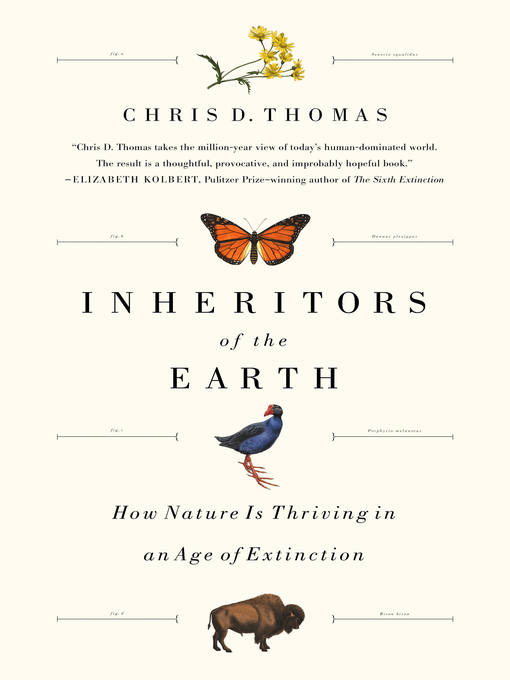
Inheritors of the Earth
How Nature Is Thriving in an Age of Extinction
کتاب های مرتبط
- اطلاعات
- نقد و بررسی
- دیدگاه کاربران
نقد و بررسی

July 15, 2017
An optimistic view of nature amid the current environmental crisis.Thomas (Conservation Biology/Univ. of York) eschews "the shackles of a pessimism-laden, loss-only view of the world"--the traditional take of most conservationists--and insists we recognize that many species are thriving in our human-altered world. In a provocative analysis based on his own research and that of others throughout the world, he shows how many animal and plant species benefit from our presence, increasing the biological diversity of much of the world. Human activities generally deemed threats to biodiversity--notably, the killing of animals, habitat destruction, climate change, and biological invasions--have in fact created "unexpected opportunities" for new species to succeed. "Humans have changed the climate, and the distribution of species have changed as a result," he writes, noting that an "inexorable march of the world's wildlife is underway," with birds moving up from the lowlands in Costa Rica, plants shifting upward in European mountain ranges, and warm-water Australian fish finding a home in once-too-chilly Tasmanian reefs. Some two-thirds of animal species "are already living in at least some 'new places' where they could not have survived as recently as fifty years ago." At the same time, humans' creation of new habitats and connections is leading to the rise of hybrid species, to the consternation of conservationists who believe "every animal should be pure." Similarly, the appearance of invasive species in new areas is simply part of the biological change that allows life on Earth to survive: "Treating each arrival of a species in a new habitat or geographic location as something to be resisted will, in most instances, result in failure, and it is ultimately counterproductive." We are losing much biodiversity because of human meddling, writes this contrarian ecologist in his fascinating book. However, "come back in a million years and we might be looking at several million new species whose existence can be attributed to humans."
COPYRIGHT(2017) Kirkus Reviews, ALL RIGHTS RESERVED.

September 1, 2017
British biologist Thomas (conservation biology, Univ. of York, UK) has a different take on biodiversity loss: though it may be the end for some species, others--like the ubiquitous sparrow--are thriving in human-altered landscapes. Citing his own research and other relevant scientific studies, the author claims that human activity and disturbance have increased the number of species on Earth (though the mix of species is different from that before the human age). He also examines how our love of "native" species and hatred of "foreign" (invasive) species is based on the erroneous assumption that there is some "correct" geographical location for any given plant and animal species. While Thomas's upbeat ecological audit is not a popular perspective in the conservation community, it is based upon a solid understanding of how ecosystems function and basic evolutionary principles. VERDICT This well-argued and provocative work is recommended for open-minded science enthusiasts interested in environmental conservation issues surrounding biodiversity, rewilding, and the resurrection of extinct species.--Cynthia Lee Knight, Hunterdon Cty. Historical Soc., Flemington, NJ
Copyright 2017 Library Journal, LLC Used with permission.

























دیدگاه کاربران